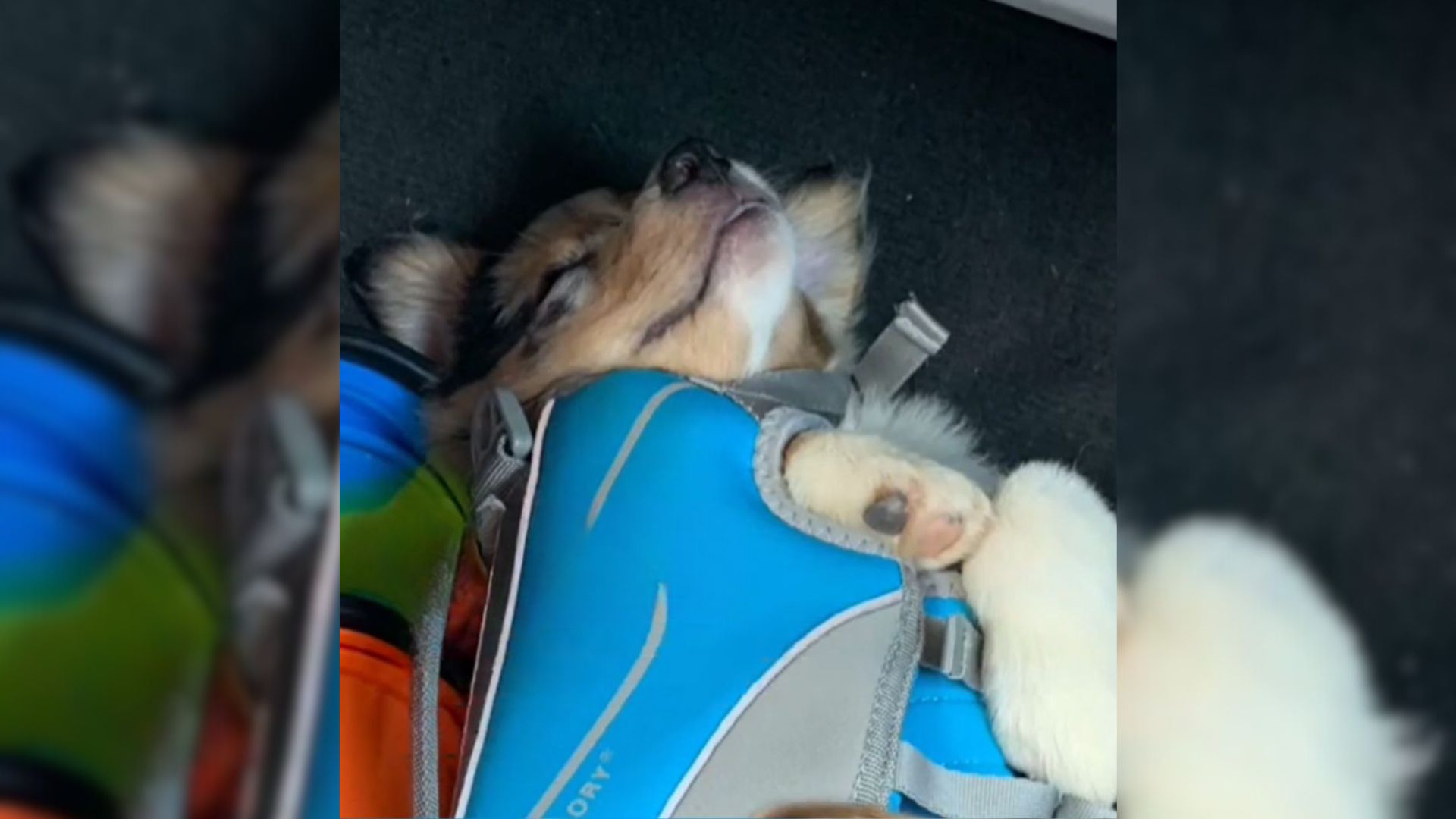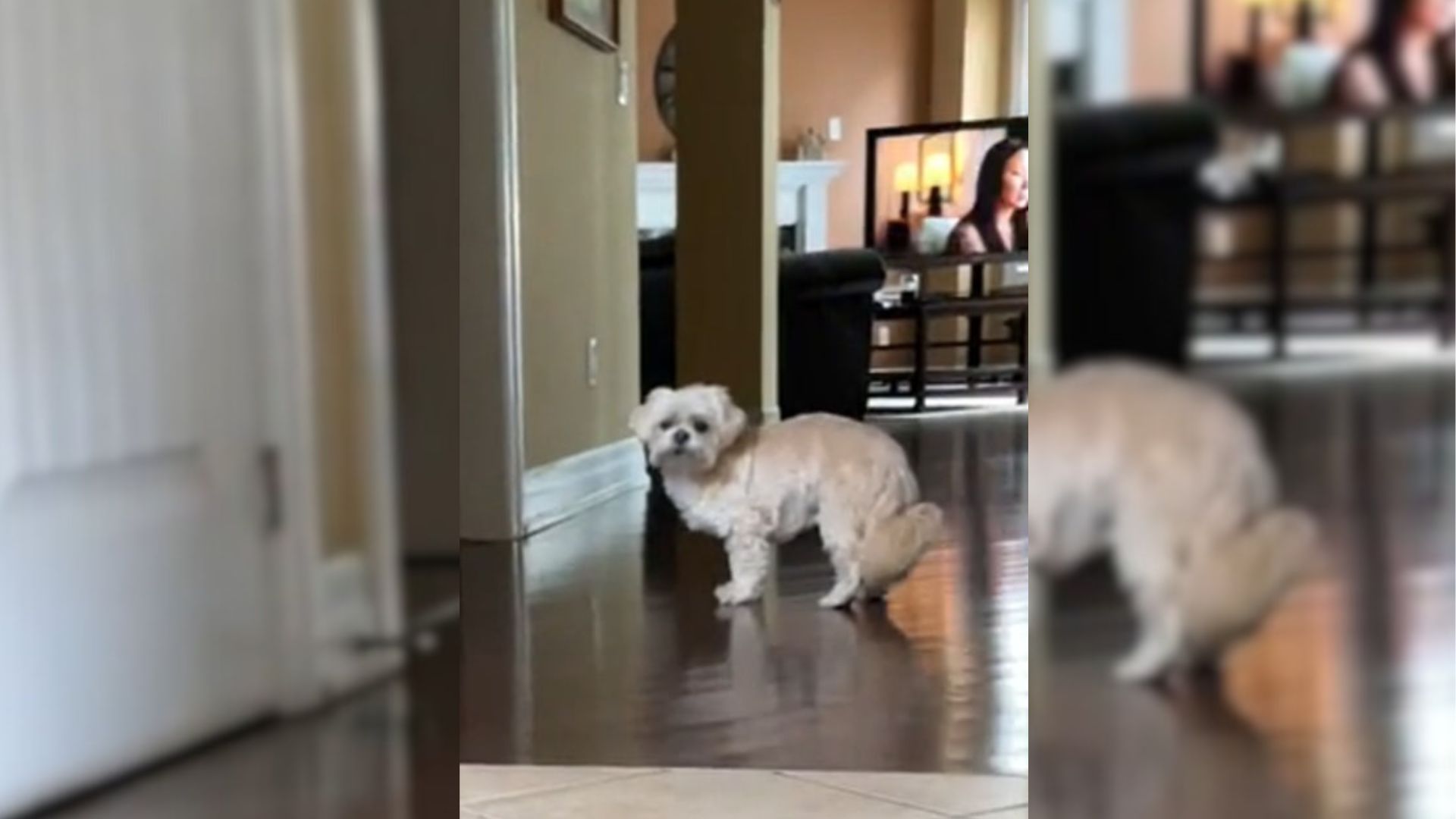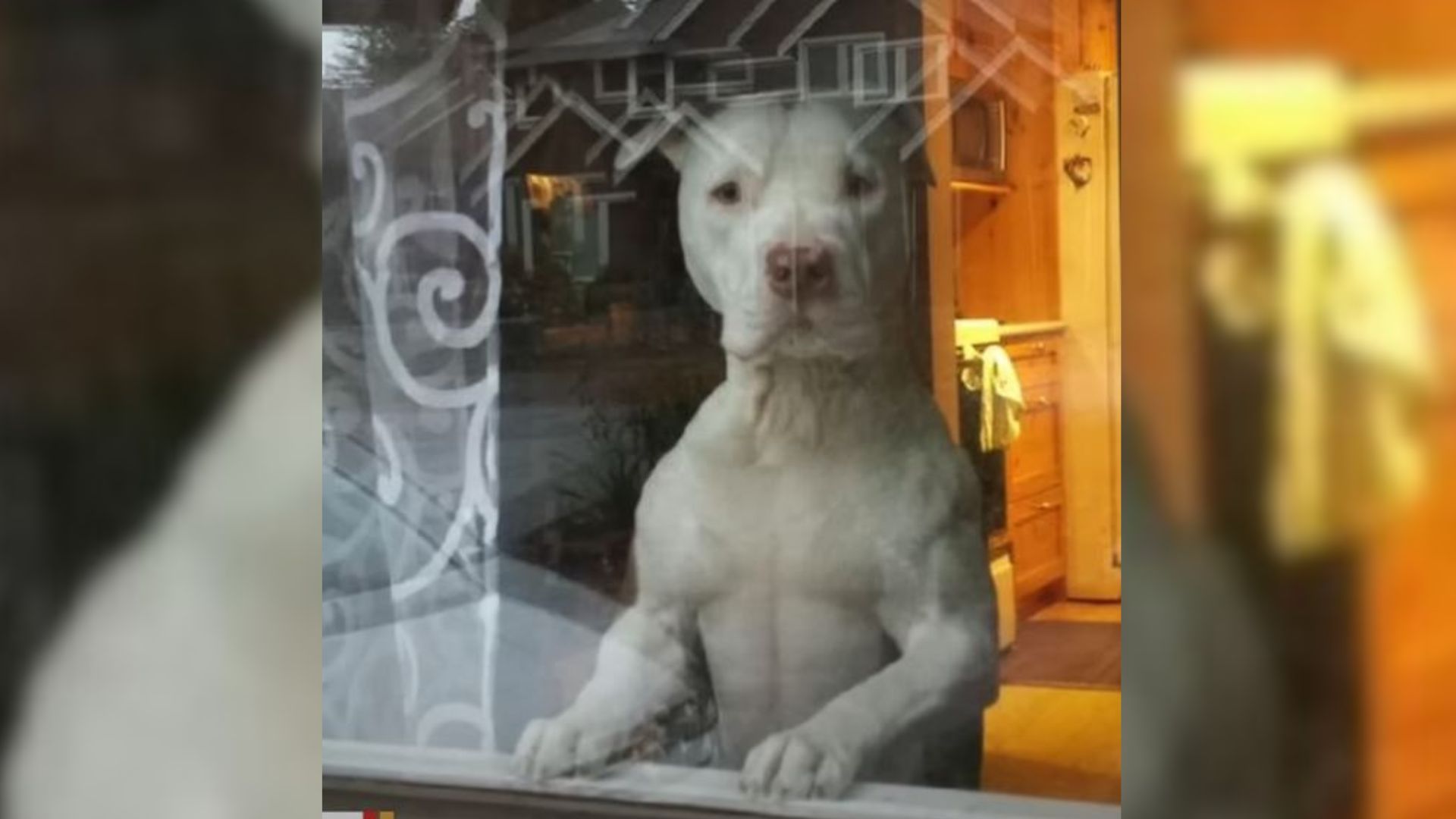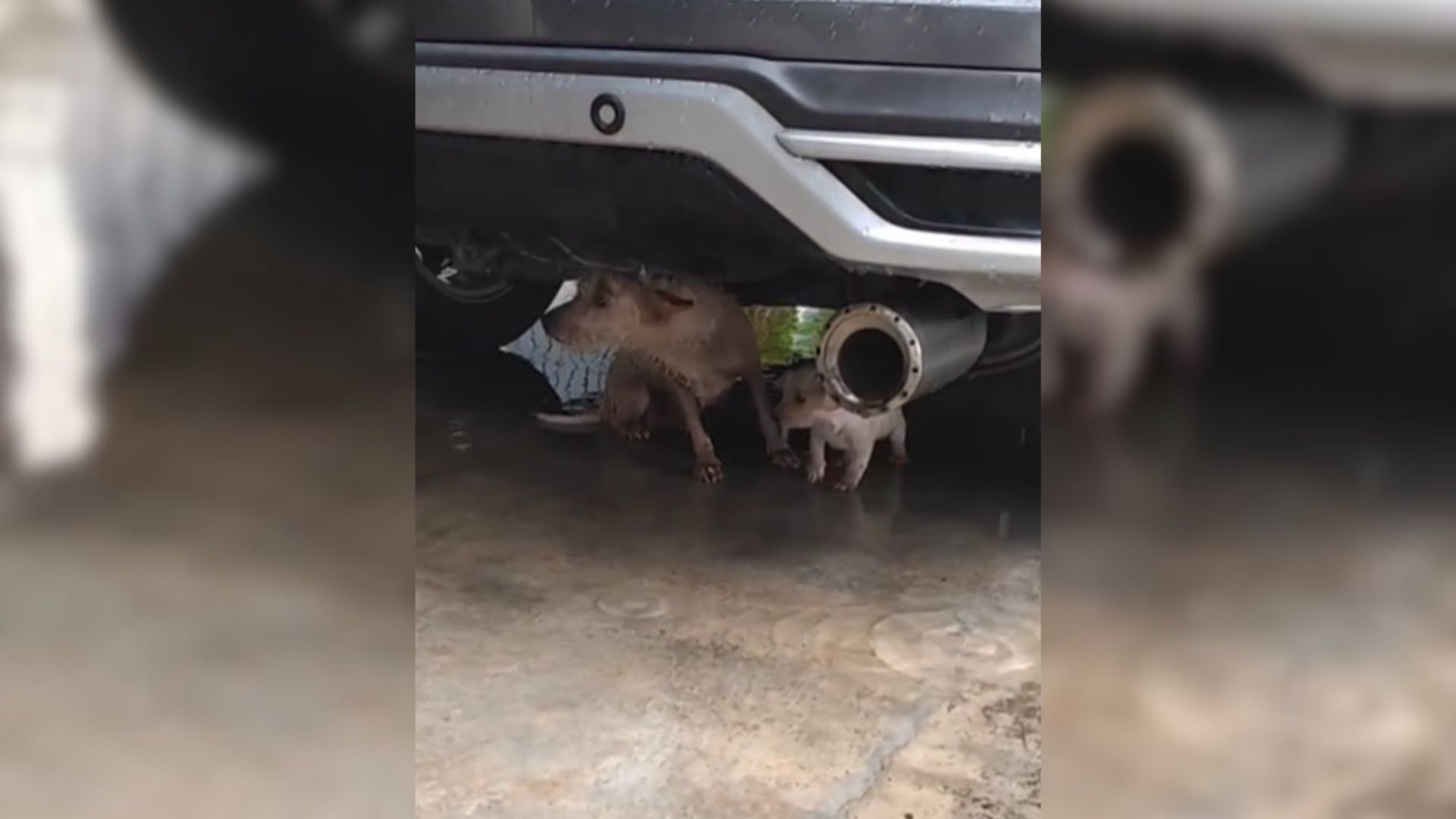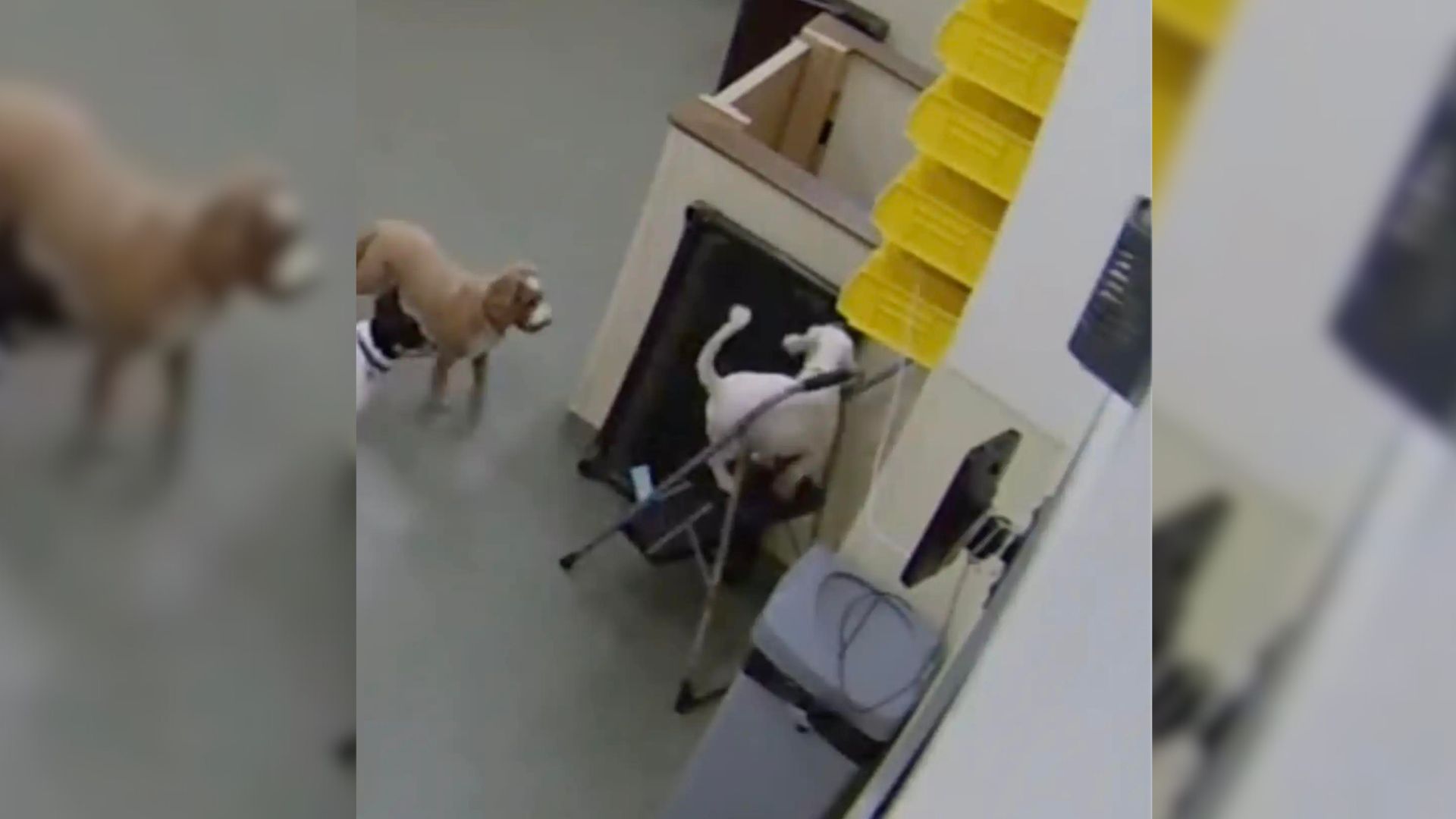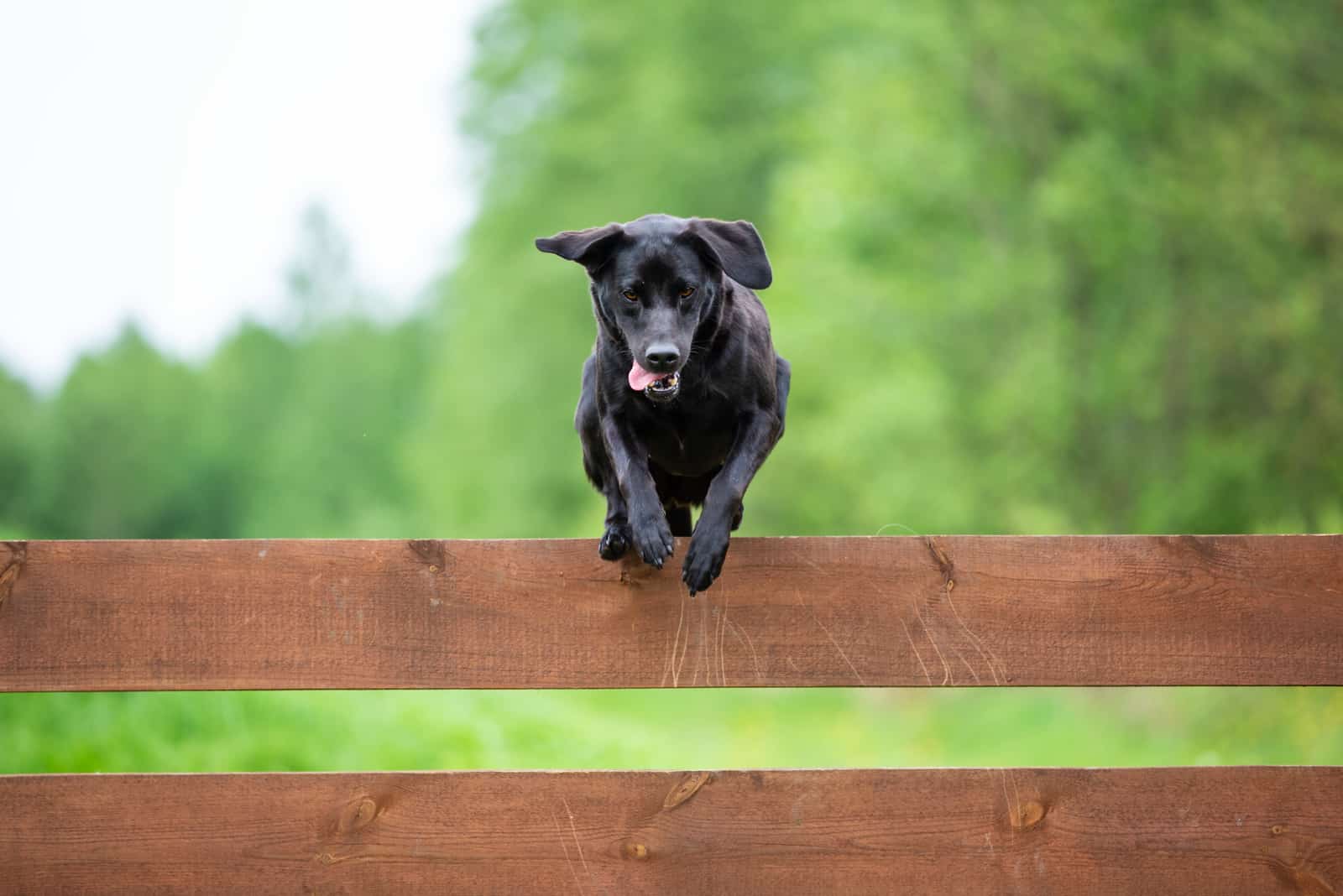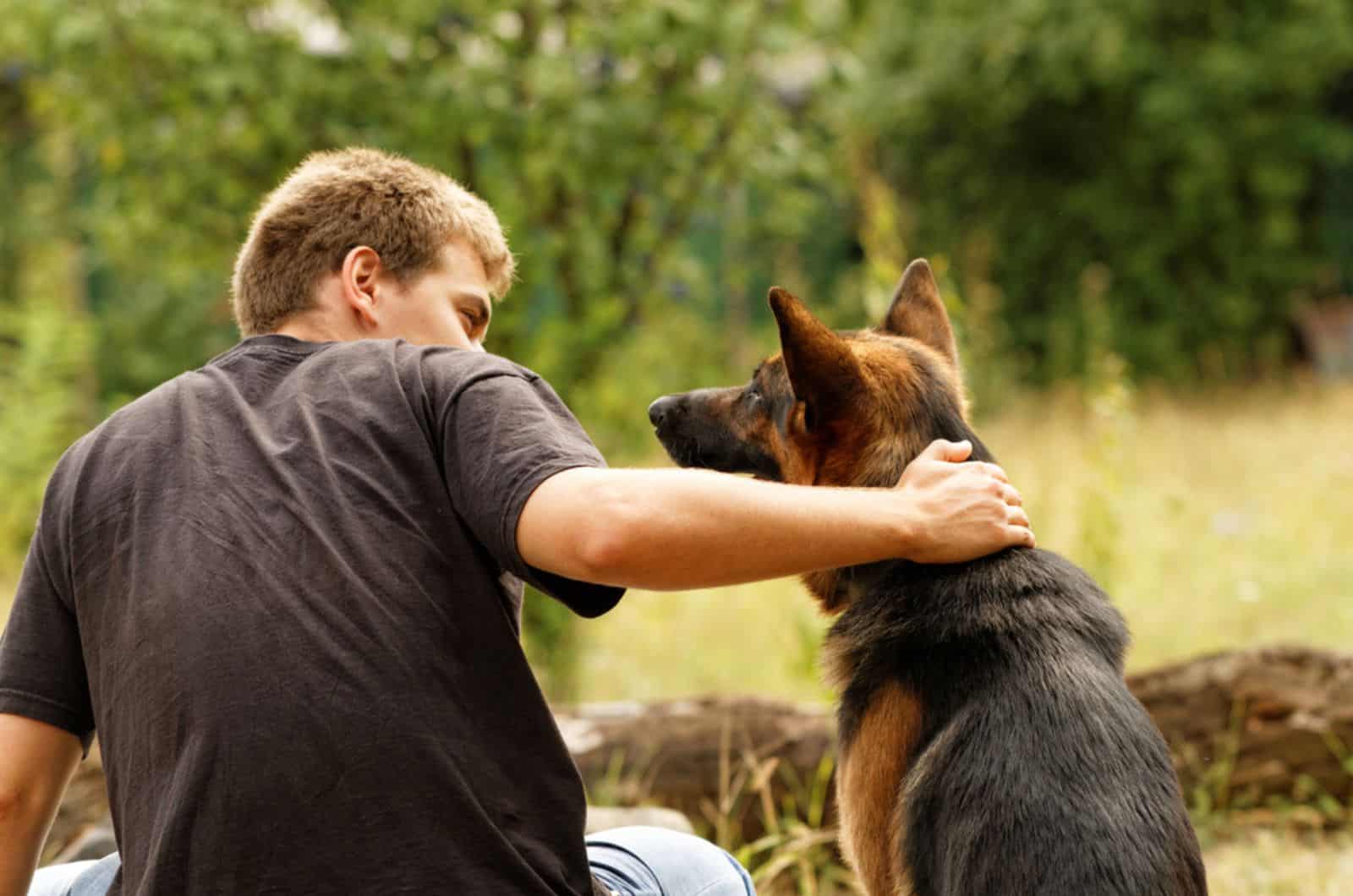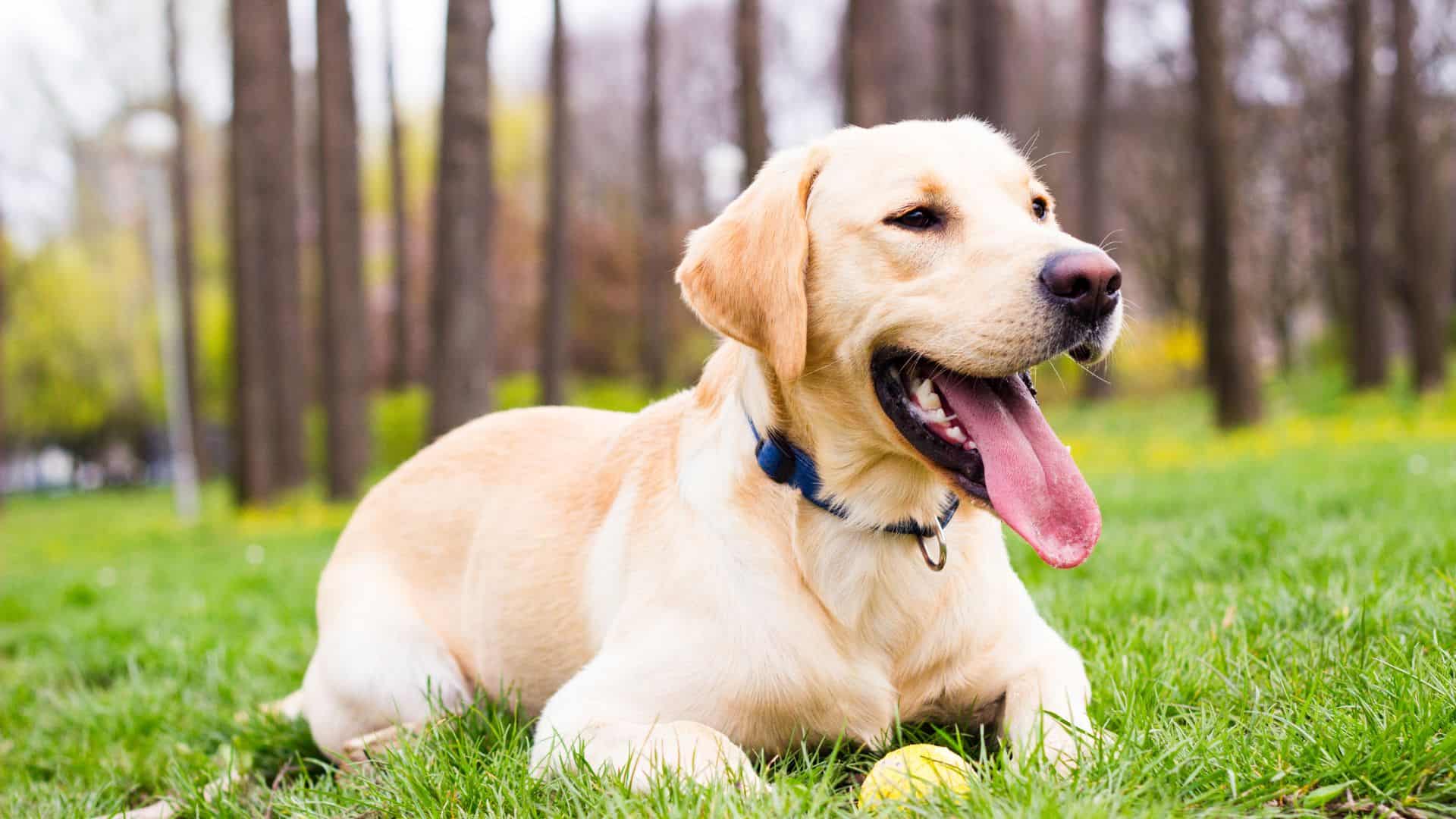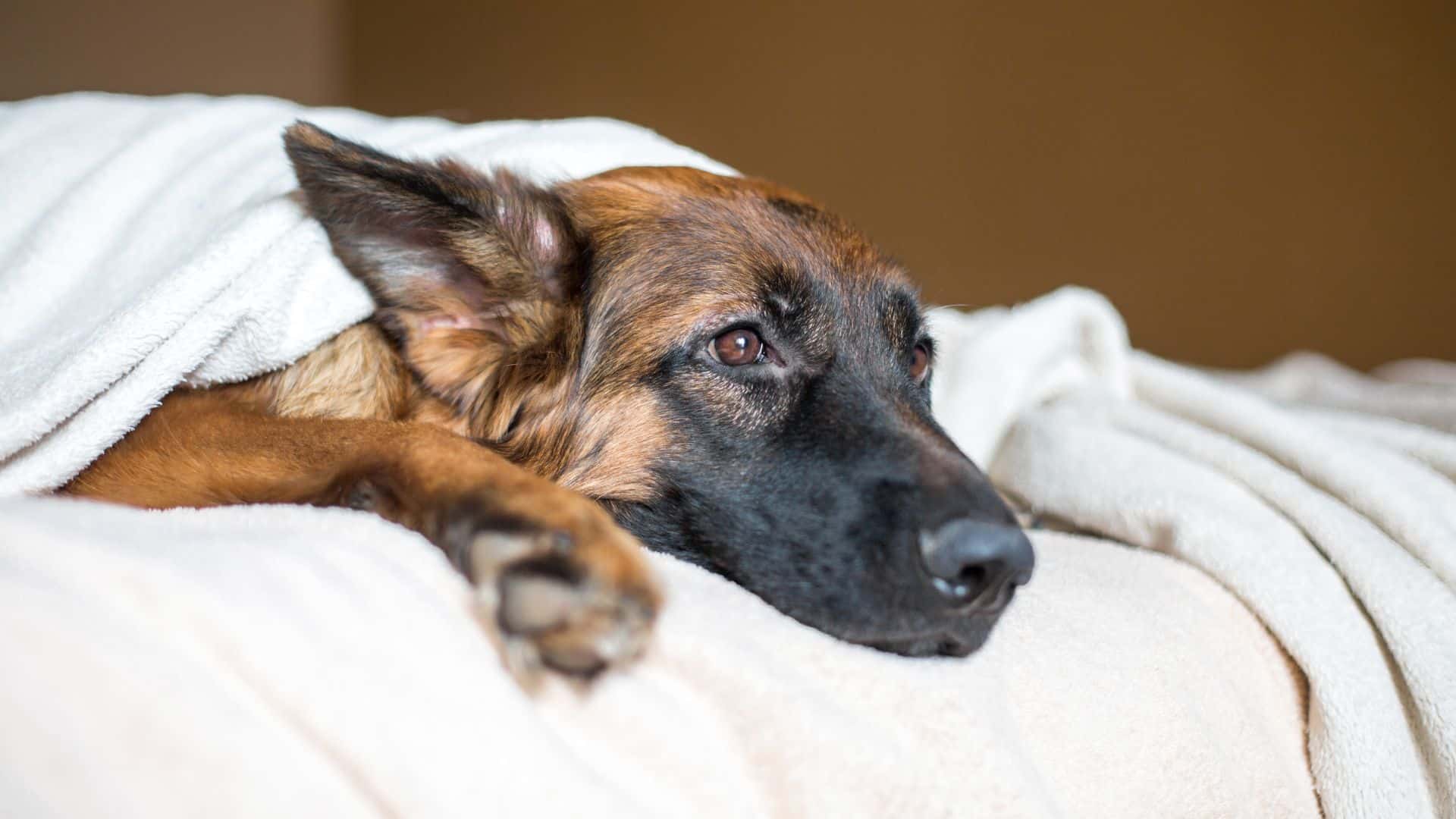“Why are Pitbulls so clingy?” This is a question that many Pitbull owners may find themselves asking at some point.
Pitbulls, or American Pit Bull Terriers to use their full name, are known for their loyalty and affection towards their owners, but this trait can sometimes manifest as clinginess.
Pitbulls may follow their owners around the house, demand constant attention, and become anxious or destructive when left alone.
While this behavior can be endearing, it can also be overwhelming for owners and can lead to issues such as separation anxiety. The good news is that there are ways to address and manage clingy behavior in Pitbulls.
Understanding the reasons behind the behavior, providing plenty of exercise and mental stimulation, and setting clear boundaries and rules can all help to alleviate clinginess in Pitbulls.
It is important to remember that Pitbulls are highly social animals that thrive on human interaction and attention, and with the right approach, owners can enjoy a happy and healthy relationship with their clingy dogs.
In this article, we will delve into all these points and try to answer the question of why are Pitbulls so clingy.
Why Are Pitbulls So Clingy?
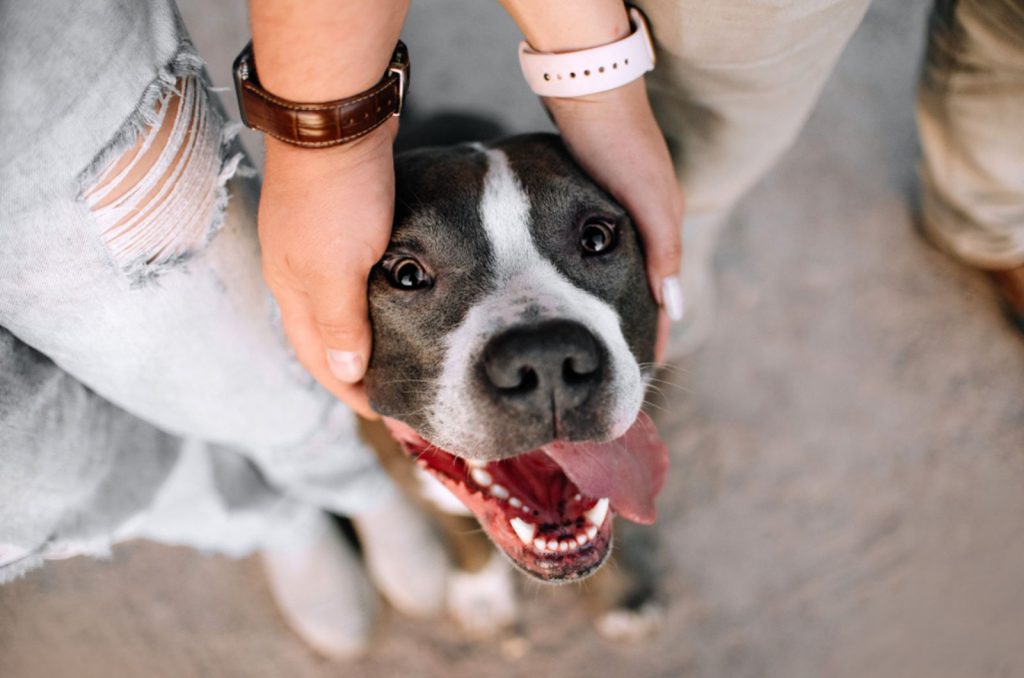
Pitbulls are known for their loyalty and affection towards their owners, which can sometimes manifest as clinginess. There are several reasons why Pitbulls may exhibit clingy nature, and we will be listing some of the most common ones below.
It’s important to keep in mind that Pitbulls are highly social animals that thrive on human interaction and attention, so with the right approach and training, owners can enjoy a happy and healthy relationship with their clingy pitties.
Common Causes Of Clinginess
There are several common causes of clingy behavior in Pitbulls, and while we will touch on some of them in more detail, we wanted to use this space to talk about them in general.
One of the main causes is the lack of proper socialization. Socialization is crucial for Pitbulls as it helps them to develop a more balanced and stable temperament.
Another common cause of clingy behavior is a lack of exercise and mental stimulation. Lack of exercise can lead to restlessness and pent-up energy, which can manifest in various ways, including clingy behavior.
In addition, clingy behavior can also be due to fear or stress caused by changes in their environment, lack of routine or structure, separation from their owner, or even health issues.
Pitbulls that have been separated from their mother and litter mates too early, or those that have been through abuse or neglect may also be more prone to clingy behavior.
Let us now go more in-depth about some of the most important reasons that could explain why are Pitbulls so clingy.
Fear
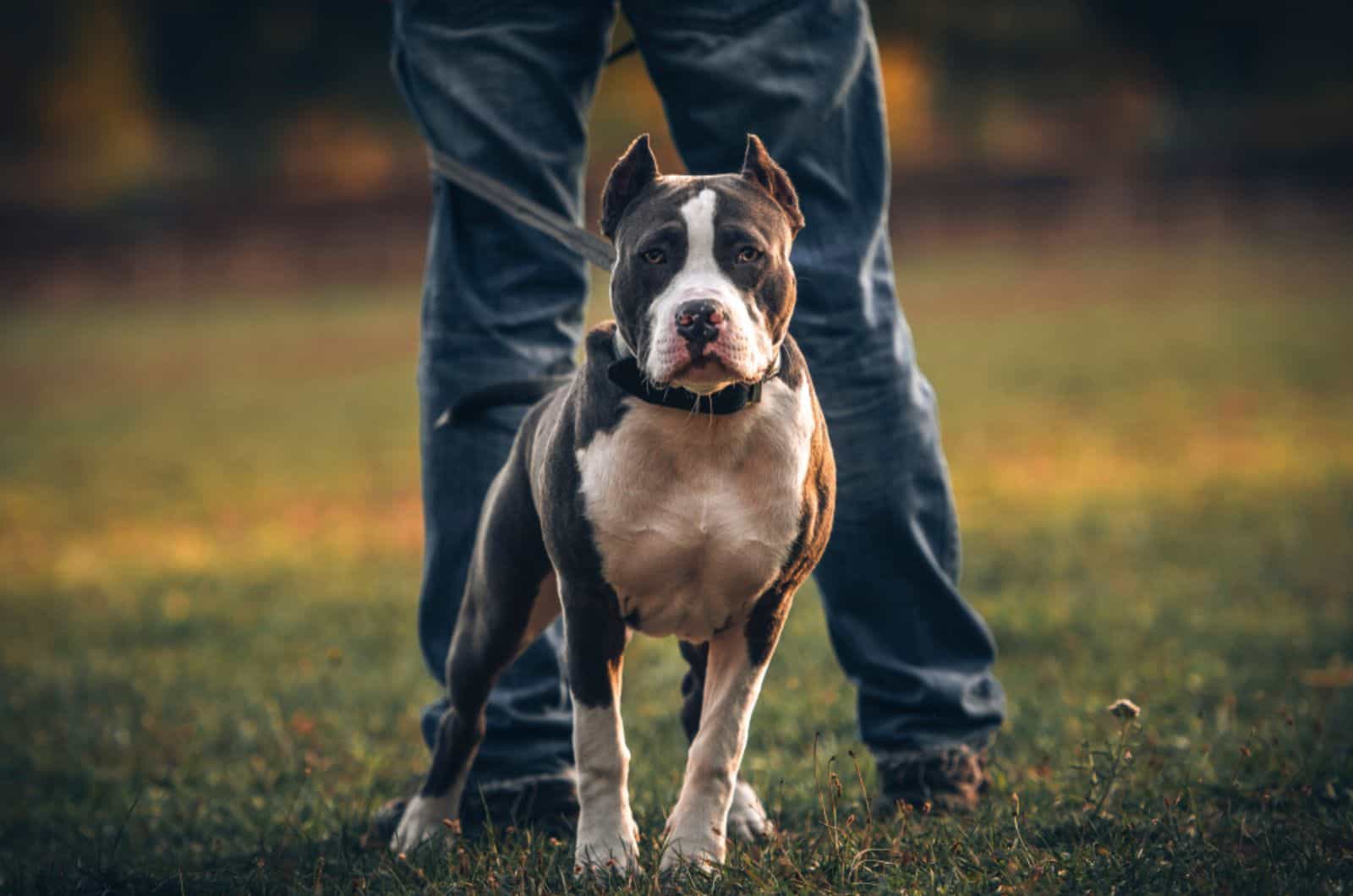
Fear can lead to clingy behavior in Pitbulls. Fear is a normal emotion for dogs and can be caused by a variety of things such as loud noises, unfamiliar people or animals, or traumatic experiences.
When a Pitbull is feeling scared or anxious, it may seek out the comfort and security of its owner as a source of reassurance. This can lead to clingy behavior, as the dog may follow their owner around constantly or become anxious or destructive when left alone.
Pitbulls that have not been properly socialized or have experienced traumatic events may be more prone to fear and anxiety, and as a result, may exhibit clingy behavior.
Additionally, Pitbulls that have been separated from their mother and litter mates too early, or those that have been through abuse or neglect may be more prone to clingy behavior as well.
It’s important to understand that fear-based clingy behavior is a sign that the dog is feeling anxious and insecure.
Address the underlying cause of the fear and provide the dog with the appropriate training and behavior modification to help them feel more secure and confident.
Boredom
Pitbulls are highly intelligent dogs that require mental stimulation to keep them engaged and satisfied. Lack of mental stimulation may lead to them becoming bored, which in turn can lead to destructive or clingy behavior.
They require mental stimulation to keep them engaged and satisfied. Training, puzzle toys, interactive toys, and games can all help to keep a Pitbull’s mind active and prevent boredom.
This can help to reduce destructive or clingy behavior that may be caused by a lack of exercise or mental stimulation.
Stress
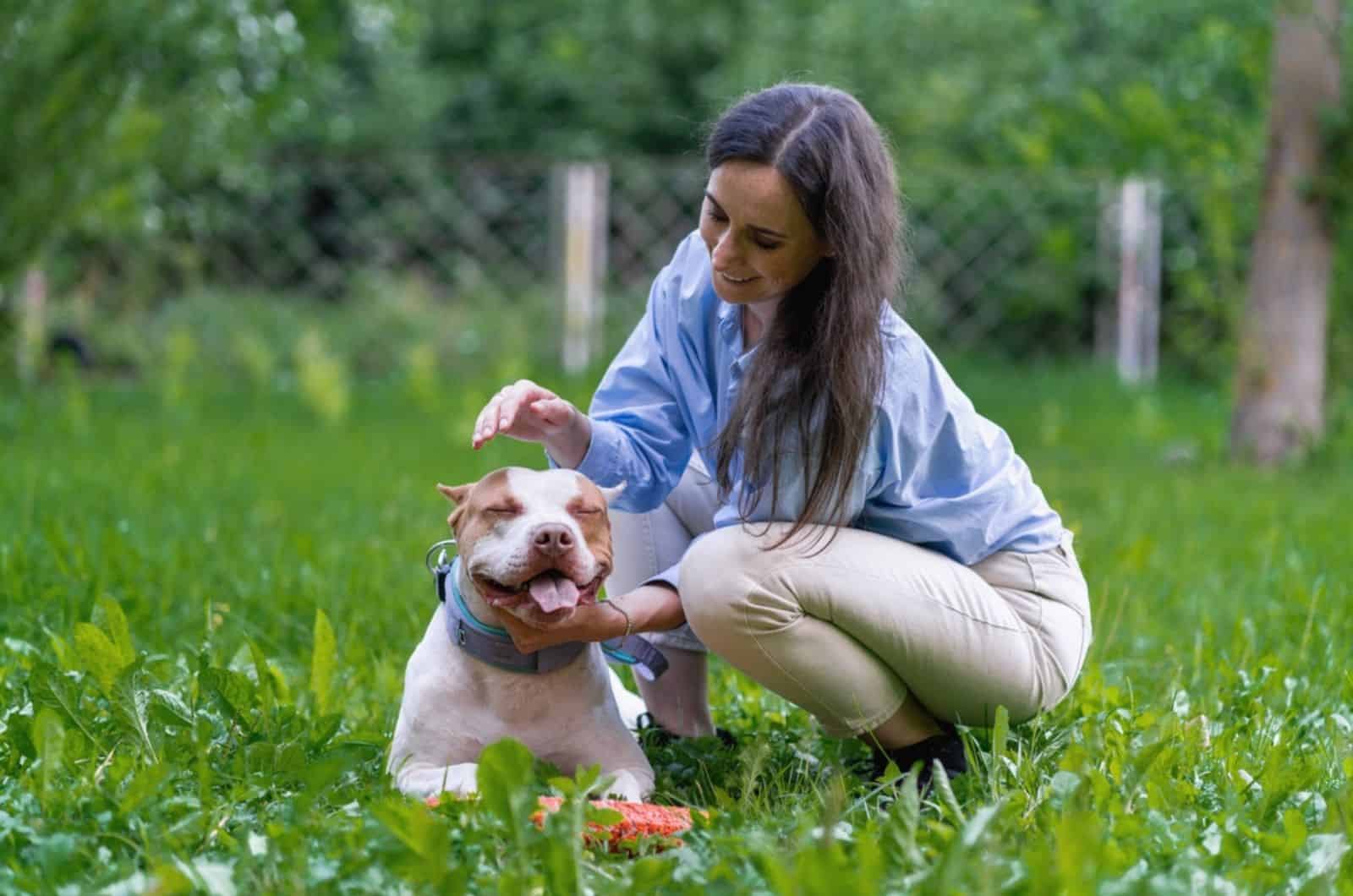
Stress can lead to clingy behavior in Pitbulls by causing them to feel anxious and insecure. Stress can be caused by a variety of factors such as changes in their environment, lack of routine or structure, separation from their owner, or even health issues.
When a Pitbull is feeling stressed, it may seek out the comfort and security of its owner as a source of reassurance. This can lead to clingy behavior, as the dog may follow their owner around constantly or become anxious or destructive when left alone.
The stress hormone cortisol, can also influence clingy behavior, as high levels of cortisol can lead to increased anxiety and restlessness, and in dogs, this may manifest as clingy behavior.
It’s important to understand that stress-based clingy behavior is a sign that the dog is feeling anxious and insecure.
Consulting with a professional trainer or behaviorist to determine the cause of the clingy behavior and developing a plan to address it, will be beneficial for the dog.
Positive reinforcement training, desensitization, counter-conditioning, and providing a consistent and predictable routine, can all help to alleviate stress-based clingy behavior in Pitbulls.
Lack Of Socialization
Pitbulls that have not been properly socialized may become overly attached to their owners as they see them as their main source of security and comfort.
Socialization is the process of exposing a dog to a wide range of people, animals, and environments in a positive and controlled way.
When Pitbulls are well-socialized, they learn to be comfortable and confident in different situations, which helps them to develop a more balanced and stable temperament.
Pitbulls that are not socialized may become fearful or anxious in new or unfamiliar situations. They may look to their owners for reassurance and comfort, which can lead to clingy behavior.
As they may not be as confident and secure around other people or animals, they may become overly dependent on their owners for social interaction and may become excessively anxious when separated from them.
Lack Of Physical Activity
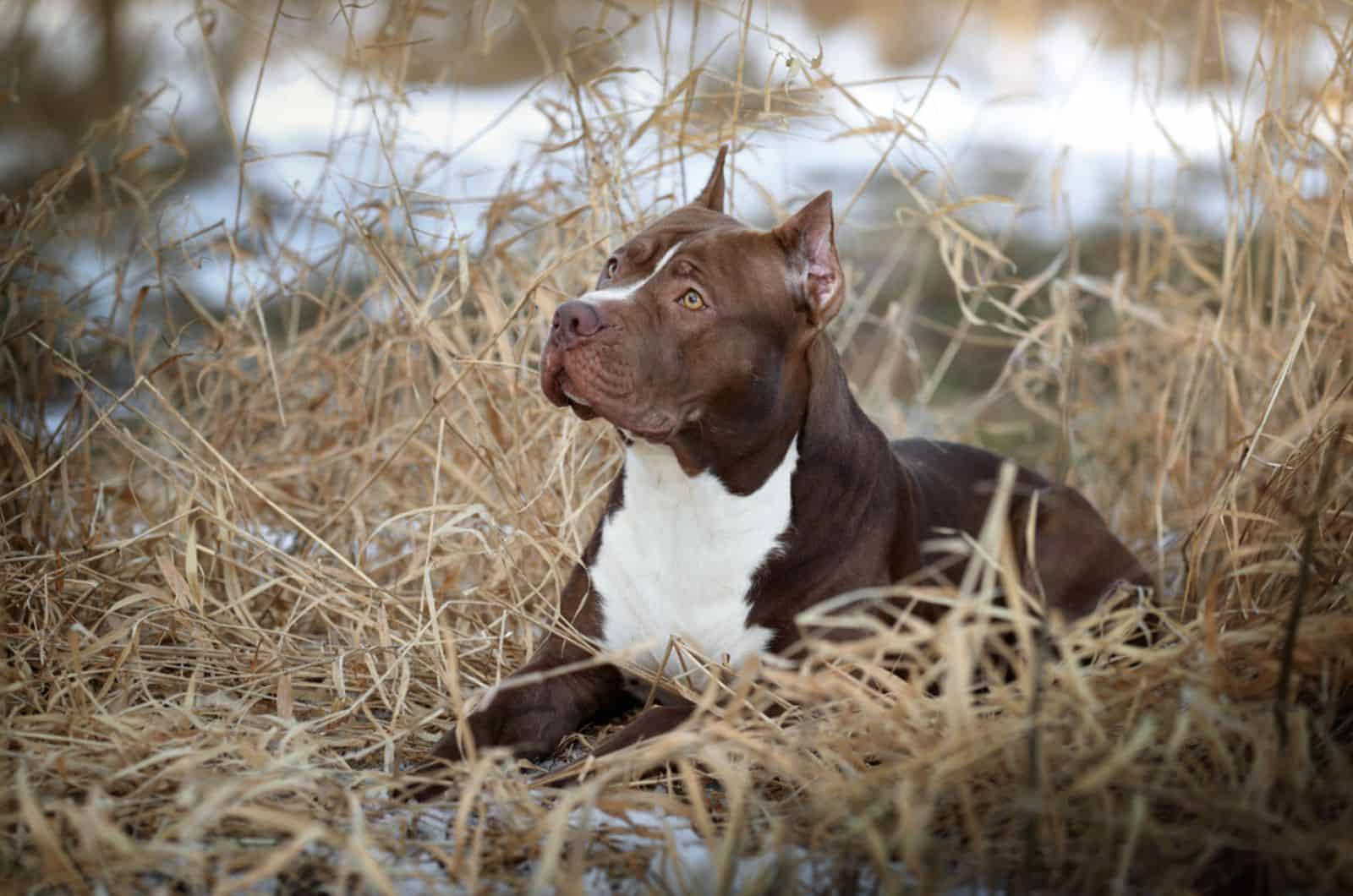
Pitbulls are highly active dogs that require plenty of exercise to maintain their physical and mental well-being. If they do not get enough exercise, they may become restless and seek attention from their owners.
This breed of dog needs regular physical activity to keep them healthy and mentally stimulated.
They have a lot of stamina and enjoy activities such as frequent walking, running, swimming, playing fetch, and agility training. A Pitbull needs to get at least 30-60 minutes of vigorous exercise per day, depending on its age, size, and health condition.
It’s important to note that exercise is not only important to prevent clingy behavior, but also to maintain the overall health and well-being of the Pitbulls.
Regular physical activity can help to prevent obesity, reduce the risk of certain health conditions, and improve overall cardiovascular health.
Age
Age can impact clingy behavior in Pitbulls in a few ways.
For example, Pitbull puppies are highly social animals that thrive on human interaction and attention. They may become clingy during the separation anxiety stage, which typically occurs between 8-10 weeks of age.
Puppies may follow their owners around the house, demand constant attention, and become anxious or destructive when left alone. However, with proper socialization and training, this behavior can be reduced as the puppy grows and matures.
Adult Pitbulls that have not been properly socialized or trained may become clingy as they may not be as confident and secure around other people or animals, they may become overly dependent on their owners for social interaction, and may become excessively anxious when separated from them.
As Pitbulls age, they may experience changes in their physical and cognitive abilities. These changes can lead to increased anxiety and insecurity, which may manifest as clingy behavior.
Senior Pitbulls may follow their owners around the house, demand constant attention, and become anxious or destructive when left alone. It is important to provide senior Pitbulls with plenty of love, attention, and care.
Lack Of Structure And Boundaries
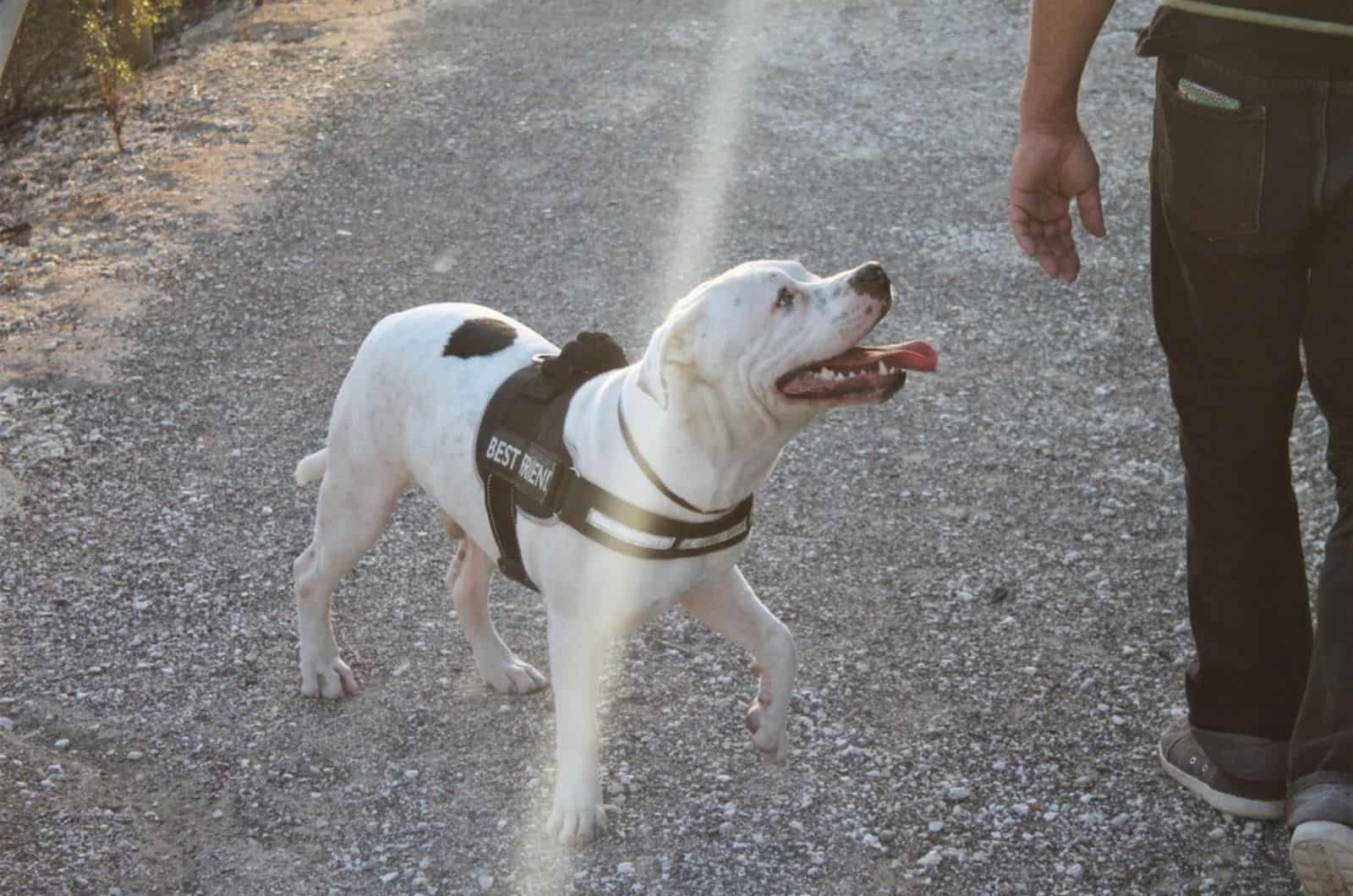
Pitbulls respond well to clear boundaries and rules. Without them, they may become unsure of what is expected of them and seek attention and reassurance from their owners.
Setting clear boundaries and rules can help to alleviate clingy behavior in Pitbulls by giving them a sense of structure and security.
Boundaries and rules should be consistent, fair, and enforceable. For example, establishing specific times for meals, walks, and playtime can provide a sense of routine and predictability for the dog.
Additionally, setting rules for acceptable behavior such as not jumping on people, not barking excessively, or not begging at the table can help to create a harmonious household.
It’s important to train Pitbulls using positive reinforcement techniques such as rewards-based training, clicker training, and using treats as rewards.
Pitbulls are highly intelligent and trainable, and with consistent and positive training, they can learn to understand and follow the rules and boundaries set by their owners.
It’s also important to establish a clear leader in the household, as the Pitbull should understand that the dog owner is the one who makes decisions and is in charge.
This can help to reduce clingy behavior, as the dog will have a sense of security knowing that the owner is in control.
Female Pitbulls In Heat
During their heat cycle, female Pitbulls may be more prone to clingy behavior due to hormonal changes that can affect their behavior and emotions.
During the heat cycle, which typically occurs every six to eight months, female Pitbulls may experience an increase in estrogen and progesterone, which can make them more affectionate and attentive to their owners.
This increased attention-seeking conduct could be considered clingy behavior. Additionally, during their heat cycle, female Pitbulls may experience a heightened sense of anxiety and insecurity, leading to clingy behavior.
It is important to note that not all female Pitbulls will experience an increase in clingy behavior during their heat cycle, and other factors such as the individual dog’s personality, socialization, and training can also play a role in their behavior.
It is important to keep an eye on the behavior of your female Pitbull during her heat cycle and to provide her with extra love, attention, and support to help her feel secure and comfortable.
If the clingy behavior is becoming overwhelming or causing problems, it’s best to consult with a professional trainer or behaviorist for advice on how to manage it.
It’s also important to note that spaying a female dog can prevent the heat cycle and the potential clingy behavior related to it.
Potential Health Issues
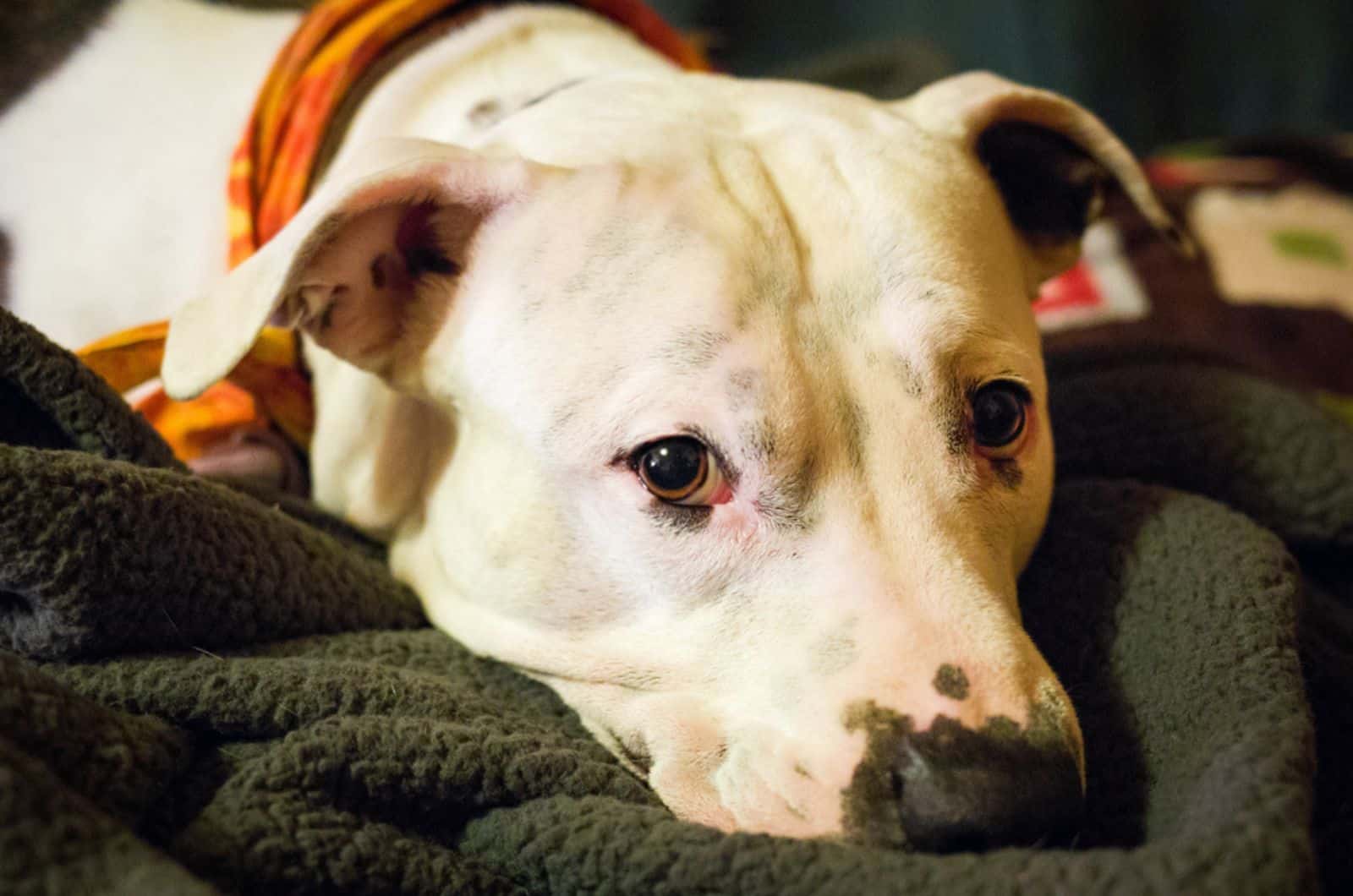
There are certain health issues that can cause clingy behavior in Pitbulls. Some examples include pain and discomfort, cognitive decline, sensory loss, and anxiety disorders.
Pitbulls that are experiencing pain or discomfort due to an injury or medical condition may become clingy as they seek comfort and reassurance from their owners. Dogs in pain may be more affectionate, follow their owners around, or even stay close to their owners when they are resting.
As Pitbulls age, they may experience cognitive decline, which can lead to confusion, disorientation, and anxiety. These dogs may become more clingy as they seek out the familiar and comforting presence of their owners.
Pitbulls that are experiencing ear or eye problems may become clingy. They may follow their owners around more or become more affectionate and attentive to their owners.
Pitbulls that suffer from anxiety disorders such as separation anxiety may become clingy as they seek out the comfort of their owners. We will talk more about separation anxiety later on, as it’s a very important issue.
It’s important to note that if you suspect that your Pitbull is experiencing a health issue that is causing clingy behavior, it is important to consult with a veterinarian to rule out any medical conditions.
It’s also important to make sure that your Pitbull is on a regular checkup schedule with a veterinarian to ensure that it’s in good health and that any issues are addressed as soon as possible.
Separation Anxiety
Separation anxiety in Pitbulls is a condition in which a dog becomes excessively anxious and stressed when separated from their owner or when left alone.
It is important to note that separation anxiety is a serious condition that should be addressed as soon as possible. A professional trainer or behaviorist can help to determine the cause of separation anxiety and develop a plan to address it.
This may include behavior modification techniques such as desensitization and counter-conditioning, positive reinforcement training, and providing a consistent and predictable routine.
Medications may also be prescribed by a veterinarian in some cases.
Causes
There are several reasons why Pitbulls may develop separation anxiety. Some of the most common causes include:
– Lack of socialization: Pitbulls that have not been properly socialized may become overly attached to their owners and become anxious when separated from them.
– Previous traumatic experiences: Pitbulls that have experienced traumatic events such as abandonment, abuse, or neglect may develop separation anxiety as a result.
– Changes in routine: Pitbulls may become anxious if their routine is disrupted, such as a change in their owner’s work schedule or a move to a new house.
Symptoms
Separation anxiety in dogs can lead to a variety of behavioral problems such as destructive behavior, drooling, excessive barking or whining, urinating or defecating in the house, and clingy behavior.
Dogs with separation anxiety may become agitated or anxious when their owner is getting ready to leave or when they are left alone. They may follow their owner around the house, become destructive or anxious, or experience a loss of appetite.
They may become destructive, bark excessively, or even try to escape when left alone.
Leaving A Pitbull With Separation Anxiety Alone In The House
When leaving a Pitbull with separation anxiety alone in the house, it is important to take steps to make the experience as stress-free as possible. In the following sections, we will be listing some helpful tips that you can try.
First, start by leaving your Pitbull alone for short periods of time and gradually increasing the duration over time. This will help them get used to being alone and reduce their anxiety.
Make sure your Pitbull has a comfortable and secure place to rest, such as a crate or a designated room or kennel, where they can feel safe and secure. This is especially important if the Pittie has recently moved into a new house.
Also, you can try leaving a worn T-shirt or a blanket with your scent on it in the crate or designated area, this can provide comfort and a sense of security for your Pitbull.
By the way, we have a more detailed article that focuses on leaving a puppy alone at home for the first time, so you might want to check that out.
If these aren’t working, perhaps you should think about asking for help. Hiring a dog walker, pet sitter, or doggy daycare to check on your Pitbull while you are away can provide them with social interaction and help to reduce their anxiety.
If your Pitbull‘s separation anxiety is severe, it is best to consult with a professional trainer or behaviorist for advice on how to manage the behavior. They can help you to develop a plan and teach you the best techniques to help your Pitbull overcome their anxiety.
In some cases, medication may be prescribed by a veterinarian to help reduce anxiety and make the dog more comfortable.
Tips On Dealing With Clingy Pitbulls
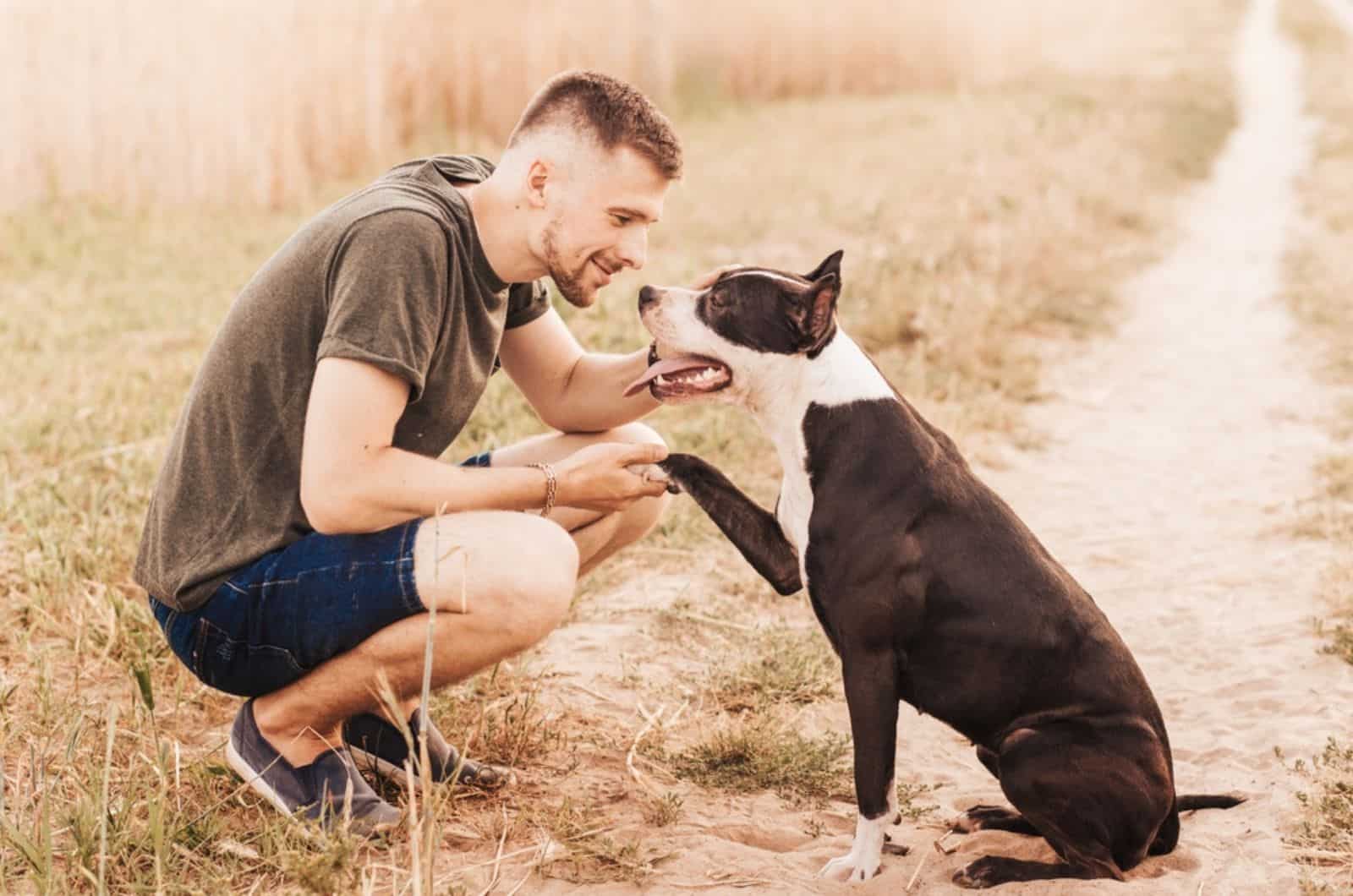
After explaining why are Pitbulls so clingy, and delving deep into some of the most common causes, it’s time to focus on the methods that you can use to correct this type of behavior.
Depending on the cause and severity of your Pitbull’s condition, some of these tips might work better for you, while others won’t have a big impact. Take the time to understand what exactly brought on this clingy behavior in your dog and then act accordingly.
Train Your Pitbull
Pitbulls are highly intelligent and trainable, and with consistent and positive training, they can learn to understand and follow the rules and boundaries set by their owners.
Use rewards-based training, clicker training, and using treats as rewards to teach new commands and behaviors.
Increase Physical Activity Levels
Pitbulls are highly active dogs that require plenty of exercise to maintain their physical and mental well-being.
A Pitbull should get at least 30-60 minutes of vigorous exercise per day, depending on their age, size, and health condition.
Provide Mental Stimulation
In addition to physical stimulation, Pitbulls also require mental stimulation to keep them engaged and satisfied.
Training, puzzle toys, interactive toys, and games can all help to keep a Pitbull‘s mind active and prevent boredom.
Establish Clear Boundaries And Rules
Pitbulls respond well to clear boundaries and rules. Establishing specific times for meals, walks, and playtime can provide a sense of routine and predictability for the dog.
Additionally, setting rules for acceptable behavior such as not jumping on people, not barking excessively, or not begging at the table can help to create a harmonious household.
Address Underlying Issues
If the clingy behavior is caused by an underlying issue such as separation anxiety, it’s important to address the underlying cause of the problem and provide the dog with the appropriate training and behavior modification to help them feel more secure and confident.
Pitbull Clinginess FAQ
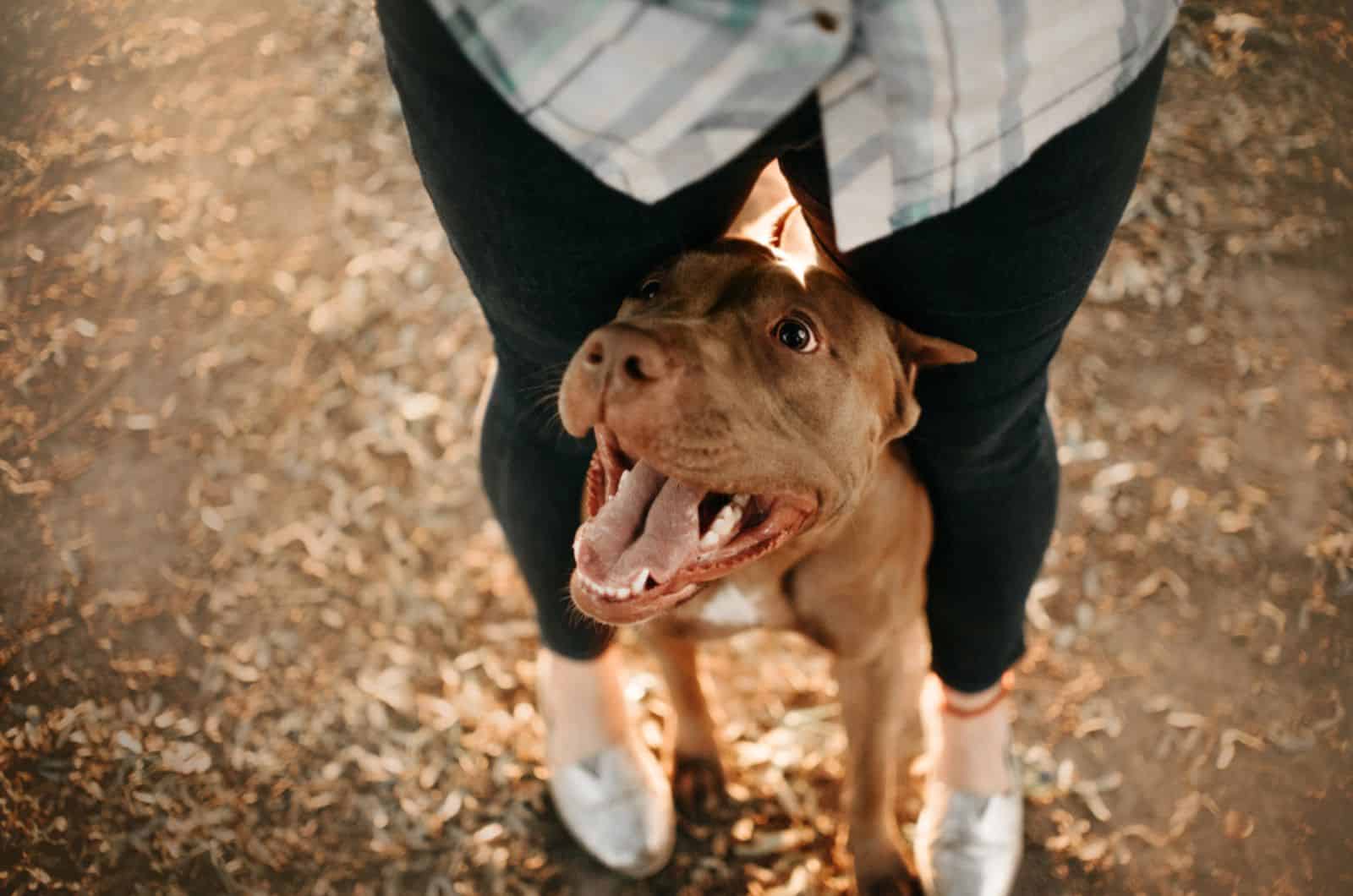
This section of the article will circle back to some of the already mentioned key points, as well as answer some of the more general questions related to the topic of why are Pitbulls so clingy.
In other words, these are the most frequently asked questions about clingy behavior in Pitbulls.
Do Pitbulls Show Affection?
Pitbulls are known to be affectionate and loyal dogs to their owners. They are highly social animals that thrive on human interaction and attention, and they can form strong bonds with their owners.
They are often described as “velcro dogs” because they are known to follow their owners around and seek out their attention and affection. They are very similar to Bulldogs in this manner.
Pitbulls are known to be affectionate with their family and will often show it by leaning on their owner, cuddling, and being close. They can also be affectionate with people they are familiar with, but may be more reserved or cautious with strangers or unfamiliar dogs.
It’s also worth noting that like any other dog, the temperament and behavior of a Pitbull can vary depending on its individual personality, socialization, and training. Some Pitbulls may be more affectionate than others, and it’s important to remember that each dog is unique.
Do Pitbulls Require A Lot Of Attention?
Due to their social nature, Pitbulls do require a moderate amount of attention, and they may become anxious or destructive if left alone for long periods of time.
It’s important to provide Pitbulls with plenty of exercise, mental stimulation, and training to keep them physically and mentally stimulated.
They also benefit from socialization, as it helps them to become more confident and well-adjusted around people, other animals, and different environments.
Providing a consistent and predictable routine and clear boundaries and rules can also help Pitbulls to feel secure and content. Additionally, providing them with interactive toys, puzzle toys, or treat-dispensing toys can help to keep them occupied when they’re alone.
Why Is My Pitbull More Clingy Than Other Dog Breeds?
Pitbulls can be considered clingy and can become anxious or destructive if left alone for prolonged periods of time. However, it’s important to note that clingy behavior can occur in any breed of dog, not just Pitbulls.
All dogs have their own unique personalities and temperaments, and the level of clinginess can vary greatly from one dog to another. Some dogs, regardless of breed, may be more independent and self-sufficient, while others may be more clingy.
Do Pitbulls Bond To Just One Person?
Pitbulls can bond with multiple people, they are not a breed that only bonds with one person.
They can be affectionate with their family and will often show it by leaning on their owner, cuddling, and being close. They can also be affectionate with people they are familiar with, but may be more reserved or cautious with strangers or unfamiliar dogs.
Final Thoughts
In conclusion, the question of why are pitbulls so clingy is a complex one. Clingy behavior can occur in any dog breed, not just Pitbulls.
It can be caused by a variety of factors such as lack of socialization, lack of exercise and mental stimulation, changes in the environment, lack of routine or structure, separation from their owner, or even health issues.
Pitbulls are known to be affectionate and social animals that thrive on human interaction and attention, and they can form strong bonds with their owners. They are often described as “velcro dogs” because they are known to follow their owners around and seek out their attention and affection.
It’s important to address the underlying cause of the clingy behavior and provide the dog with the appropriate training, socialization, and care.
Establishing clear boundaries and rules, providing plenty of exercise and mental stimulation, practicing positive reinforcement training, providing consistency and predictability, and seeking professional help when necessary are all ways to help reduce clingy behavior in Pitbulls.

